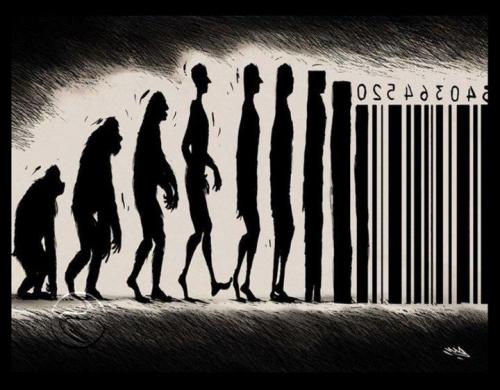Consumerism and Revolution
- Opinión

It could well be said that the day President Nicolás Maduro declared that the right to a plasma television set should be guaranteed to all Venezuelans, was the day the Bolivarian Revolution ceased to exist. What socialist revolution can be sustained if the utopia upon which it is built is nothing more or nothing less than making the consumption of the merchandise that constitute the great fetishes of modern consumer societies universal? What economic war can be won against the Right if there are no ideological weapons to confront their weapons of mass consumption?
In Argentina, the Kirchner revolution also tried to spread the consumption of household appliances to the masses as part of the process of economic and social democratization, and we already know how that revolution turned out. In 2011, President Cristina Fernández’s administration announced the LCD for All Plan, with its 60 installment, financed purchase of 200,000 32-inch, high definition LCD’s, primarily intended for retirees and holders of universal child benefits and other types of social welfare programs. According to the former president of Argentina, this was part of the process of going from “an Argentina for the few, to an Argentina for many, to one for all".
In Cuba, the consumerist utopia is progressively replacing the communist utopia, similar to what happened in the 1990s in China and in recent years in Vietnam. The young people and adults with the highest level of human development in Latin America and the Caribbean, educated in the ethical models of Che Guevara and Camilo Cienfuegos, now sigh nostalgically “for all the pretty, modern things that can be had in any place in the world, but not in Cuba”. Will the search for the consumerist dream and not poverty be the incentive keeping almost 6,000 Cuban nationals stranded on the border between Costa Rica and Nicaragua on their way to the United States?
Those of us familiar with the capitalist system know it to be a powerful machine churning out subjects who voluntarily subordinate their lives to the authoritarian values and principles emanating from the economic, legal, political and cultural order established by Capital.
This implies that a leftist government that claims to maintain a capitalist system as a political strategy while it constructs socialism, must necessarily accept that the social cohesion and social inclusion of its subjects must be achieved through the adoption of a lifestyle that transforms the rights of the citizenry into the rights of consumption and consumers, and reduces personal freedom to the freedom to choose and buy merchandise in the marketplace.
In this situation, these governments should not be surprised when the working class and other low income sectors only continue to adhere to a socialist project when they are reserved a space within consumer society, and that as soon as they obtain that space – whether through social policies or by way of employment or credit – they begin to become indignant and mobilize against all that they consider a threat to their consumption. Consequently, they will support and vote for those who promise to sustain and increase this consumption, no matter whether they are on the left or on the right, or if they are democratic or fascists. Isn’t this what they are calling for in the streets of Brazil when they demand that the president of Brazil step down? Is that not what is behind the increasing victories of fascist parties in Greece, Hungary and France?
Some parties on the left justify their defeats and/or their pragmatism by pointing out that their governments are victims of “left-wing childishness,” of the “right’s economic war” and/or unbridled capitalism. Other parties on the left (such as the FMLN in El Salvador) justify their capitalism-enhancing policies, citing that they cannot go against history, since the revolution and socialism will have a place in governmental programs whenever the people want revolution and socialism.
While it’s true that class consciousness and the desire for socialism are constructed, can one desire revolution as they wait on line at the supermarket or while walking through the immense arsenals of merchandise that fortify the shopping centers? Can one think and act solidarily while piling up the credit card and mortgage bills? Can one develop a socialist consciousness while one’s social being remains anchored to capitalism?
The aspiration for socialism only emerges if the people realize that capitalism and consumerism are not the solution to their problems. But for that, one needs parties on the left who offer emancipating alternatives. For that, the parties on the left who have adopted bourgeois class-consciousness and whose consumerist aspirations are found in capitalism cannot be taken seriously when they present socialist alternatives.
And that’s an “inconvenient” subject to discuss during the consumerist orgy of Christmas and the New Year.
16 December 2015
- Julia Evelyn Martínez is a professor of economics at the Universidad Centroamericana “José Simeón Cañas” (UCA) in El Salvador.
Translated by Danica Jorden. Danica Jorden is a writer and translator of Spanish, French, Italian, Portuguese and other languages. danicajorden1@gmail.com
Original: http://www.contrapunto.com.sv/opinion/columnistas/consumismo-y-revolucion








